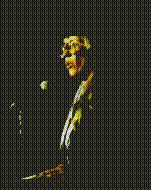

- eradicate the damages caused by bases, remove the U.S. bases, and abrogate the Japan-U.S. military alliance;
- defend Article 9 of the Constitution and develop a big drive for prevention of Japan becoming a big military power;
- see that Japan and the world are free from nuclear weapons; and
- link our struggle to protection of the people's living."
[A personal note: Deepest thanks are due all the wonderful people I met during my tour, especially the skillful, patient (and fun!) women who guided and translated for me in Misawa (Rieko Asato and Myumi Kogure), Hiroshima (Itsuko Yoshioka and Mrs. Minami) and Kobe (Nobue Kugimaya), and the honorable gentlemen who escorted me from Tokyo to Misawa and back (Mr. Fukuyama) and through Kobe (Mssrs. Okawa, Kajimoto, Nishioka, and Haino). I pray we may all meet again.]
- About Japan's Peace Constitution Next Page
- Ellen's Speech at Japanese Peace Conference Previous Page
- Contents
- Proposition One Home Page
See Also Japan Trip 2001